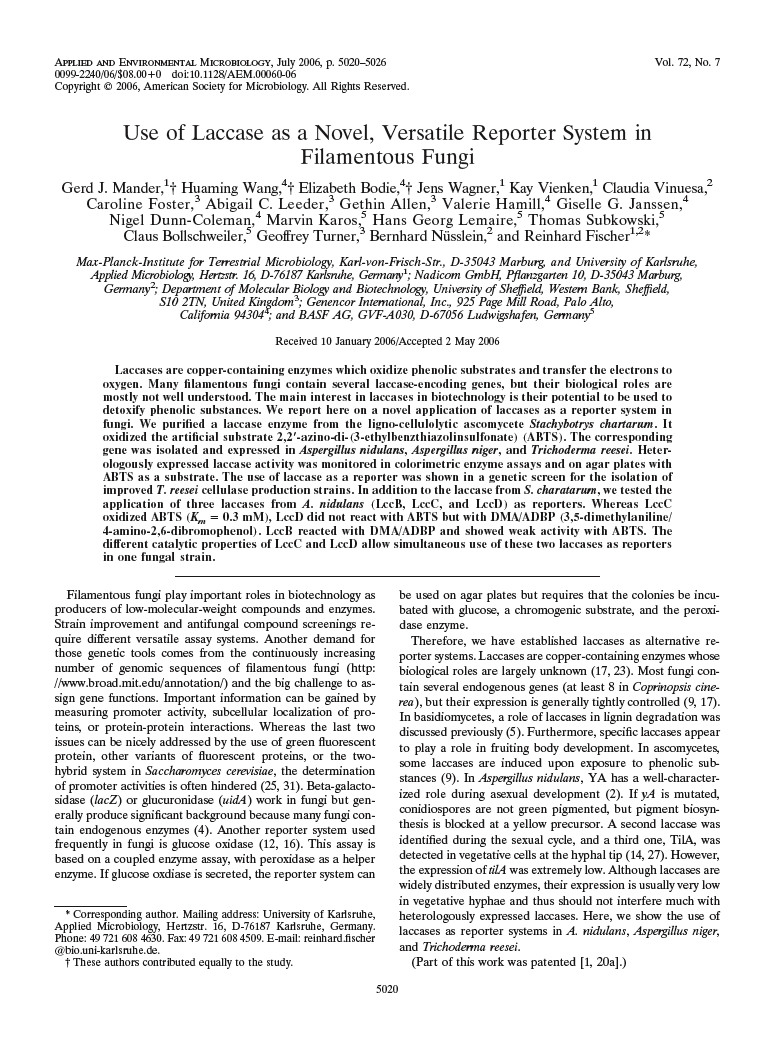Mander et al. 2006
Laccase as a novel, vesatile reporter gene for filamentous fungi. Appl. Env. Microbiol., 72(7):5020-5026.
Mander, G., Wang, H., Bodie, E., Wagner, J., Vienken, K., Vinuesa, C., Foster, C., Leeder, A.C., Allen G., Hamill, V., Janssen, G.G., Dunn-Coleman, N., Karos, M., Lemaire, H.G., Subkowski, T., Bollschweiler, C., Turner, G., Nüsslein, B. & Fischer, R.
Abstract
Laccases are copper-containing enzymes which oxidize phenolic substrates and transfer the electrons to oxygen. Many filamentous fungi contain several laccase-encoding genes, but their biological roles are mostly not well understood. The main interest in laccases in biotechnology is their potential to be used to detoxify phenolic substances. We report here on a novel application of laccases as a reporter system in fungi. We purified a laccase enzyme from the ligno-cellulolytic ascomycete Stachybotrys chartarum. It oxidized the artificial substrate 2,2'-azino-di-(3-ethylbenzthiazolinsulfonate) (ABTS). The corresponding gene was isolated and expressed in Aspergillus nidulans, Aspergillus niger, and Trichoderma reesei. Heterologously expressed laccase activity was monitored in colorimetric enzyme assays and on agar plates with ABTS as a substrate. The use of laccase as a reporter was shown in a genetic screen for the isolation of improved T. reesei cellulase production strains. In addition to the laccase from S. charatarum, we tested the application of three laccases from A. nidulans (LccB, LccC, and LccD) as reporters. Whereas LccC oxidized ABTS (Km = 0.3 mM), LccD did not react with ABTS but with DMA/ADBP (3,5-dimethylaniline/4-amino-2,6-dibromophenol). LccB reacted with DMA/ADBP and showed weak activity with ABTS. The different catalytic properties of LccC and LccD allow simultaneous use of these two laccases as reporters in one fungal strain.

